Up to 90% of the seafood products that Brazil buys from Vietnam are pangasius fish.
According to newly released information from the Vietnam Association of Seafood Exporters and Producers (VASEP), in January 2023, the volume of pangasius exported to Brazil reached 1,194 tons, down 79% year-on-year and the lowest level since May 2022. The average export price of Vietnamese pangasius to Brazil in January reached 3.06 USD/kg, up 3% compared to 2.98 USD/kg in the same period last year.
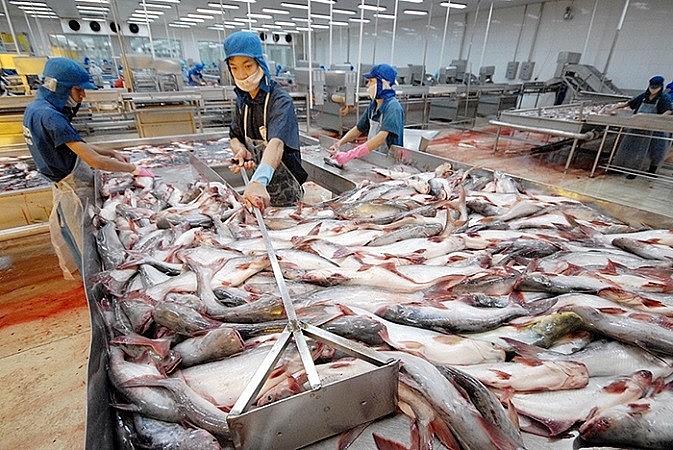 |
| Up to 90% of the seafood products that Brazil buys from Vietnam are pangasius fish. |
As of mid-February 2023, Vietnam's pangasius exports to Brazil reached a value of 10.5 million USD, down 51% compared to the same period last year. In the general downward trend in most markets, Brazil still holds the position as the 4th largest import market for Vietnamese pangasius, accounting for nearly 7% of the proportion.
According to statistics from Vietnam Customs, Vietnam's pangasius exports to Brazil in 2023 will reach 113 million USD, up 19% compared to 2022.
Brazil is one of the few markets that has achieved positive growth in pangasius imports from Vietnam. While most major markets witnessed a continuous decline in 2023, this South American country has consistently achieved double- to triple-digit growth in most months of the year.
In the last two months of 2023, pangasius exports to Brazil nearly doubled compared to the same period in 2022 and were the highest in the past two years. In the fourth quarter of 2023, Brazil imported nearly 42 million USD worth of Vietnamese pangasius, an increase of 78% over the same period in 2022. Notably, in December 2023, pangasius exports to Brazil grew by 3 digits, doubling compared to December 2022. Thanks to pangasius sales in the last month of 2023, Brazil ranked 4th in the largest consumer market of Vietnamese pangasius after China and Hong Kong (China), the US, and CPTPP in the fourth quarter of 2023.
According to data from the International Trade Center (ITC), Vietnam remains the number 1 supplier of white fish to Brazil. At the end of 2023, export prices to this country dropped to a low level, but export turnover increased, showing that demand for pangasius in Brazil is still good.
Brazil mainly imports pangasius from Vietnam. Up to 90% of the seafood products that this country buys from Vietnam are pangasius. Along with pangasius, Brazil imports tilapia from Vietnam, however, the quantity is not much. Recently, Brazil officially stopped importing tilapia products from Vietnam from February 14, 2024 until the conclusion of the review of the risk of disease caused by the TiLV virus according to Decision No. 270 dated February 9, 2024 of the Animal and Plant Quarantine Agency, Ministry of Agriculture and Livestock of Brazil (MAPA). This decision creates challenges that Vietnamese businesses need to anticipate.
According to the Vietnam Association of Seafood Exporters and Producers (VASEP), this can be considered an initial barrier for Vietnamese tilapia products, and possibly other seafood products in the Brazilian market such as pangasius. Therefore, businesses need to be more careful in selecting breeds as well as controlling diseases for not only tilapia but also white fish, including pangasius.
Proposal to change Vietnam's shrimp and pangasius import standards
Regarding market barriers to the seafood industry, Mr. Le Ba Anh - Deputy Director of the Department of Agricultural Product Processing and Market Development ( Ministry of Agriculture and Rural Development ) - stated that Brazil is applying standards on additives, phosphates and conducting inspections of additive indicators for Vietnamese pangasius that are not in line with international practices and market requirements. Currently, this issue needs to be reviewed by Brazil.
In addition, Brazil has not allowed Vietnam to export whole frozen shrimp, and at the same time, it applies heat treatment requirements for shrimp exported to this country that are different from the regulations of the World Organization for Animal Health (OIE). Accordingly, Vietnam has provided OIE documents to the Brazilian Ministry of Agriculture and Livestock through the Embassy and believes that this regulation needs to be changed to comply with international regulations.
Mr. Le Ba Anh also suggested that Brazil change administrative procedures related to product label registration and additional recognition, and process the list of Vietnamese enterprises allowed to export agricultural products to Brazil at a faster pace, in order to meet the needs of businesses.
Regarding Brazil's decision to stop importing Vietnamese tilapia until the conclusion of the review of the risk of disease caused by the TiLV virus. The Department of Quality, Processing and Market Development of Agricultural Products requested that shipments that were being brought into Brazil before the decision were still facilitated for normal import.
Regarding this, Mr. Roberto Serroni Perosa - Deputy Minister of Agriculture and Livestock of Brazil - said that Brazil will approve the list of exporting enterprises and the Brazilian Embassy in Vietnam will send a diplomatic note to make this decision. Mr. Perosa also affirmed that tilapia shipments from Vietnam to Brazil before the decision will be cleared normally.
According to Mr. Roberto Serroni Perosa, the Brazilian side has raised three concerns and hopes to receive feedback from the Ministry of Agriculture and Rural Development, including: The possibility of exporting live beef and beef by-products as animal feed to Vietnam; exporting frozen chicken feet; the issue of changing international quarantine certificates; and the issue of zoning highly pathogenic avian influenza in Vietnam for Brazilian goods.
Mr. Phung Duc Tien - Deputy Minister of Agriculture and Rural Development - affirmed that the Vietnamese market is very open to Brazil. Agricultural products of the two countries are complementary and not confrontational. Vietnam is willing to work with Brazil on animal feed and live beef with quality requirements and low prices to ensure competition.
The Deputy Minister also asked Brazil to make an early decision on the import of frozen shell-less and headless shrimp, and to allow the use of phosphate in pangasius meat according to OIE regulations.
Deputy Minister Phung Duc Tien assigned the Department of Agricultural Product Processing and Market Development to discuss with the Brazilian Embassy on the issue of tra fish and shrimp, and assigned the Department of Animal Health (Ministry of Agriculture and Rural Development) to handle issues related to the import of raw beef, beef products and frozen chicken feet so that the two sides can reach a written agreement as soon as possible.
Source



![[Photo] General Secretary To Lam attends the conference to review 10 years of implementing Directive No. 05 of the Politburo and evaluate the results of implementing Regulation No. 09 of the Central Public Security Party Committee.](https://vphoto.vietnam.vn/thumb/1200x675/vietnam/resource/IMAGE/2025/5/19/2f44458c655a4403acd7929dbbfa5039)
![[Photo] Close-up of Tang Long Bridge, Thu Duc City after repairing rutting](https://vphoto.vietnam.vn/thumb/1200x675/vietnam/resource/IMAGE/2025/5/19/086736d9d11f43198f5bd8d78df9bd41)
![[Photo] President Luong Cuong presents the 40-year Party membership badge to Chief of the Office of the President Le Khanh Hai](https://vphoto.vietnam.vn/thumb/1200x675/vietnam/resource/IMAGE/2025/5/19/a22bc55dd7bf4a2ab7e3958d32282c15)

![[Photo] Panorama of the Opening Ceremony of the 43rd Nhan Dan Newspaper National Table Tennis Championship](https://vphoto.vietnam.vn/thumb/1200x675/vietnam/resource/IMAGE/2025/5/19/5e22950340b941309280448198bcf1d9)






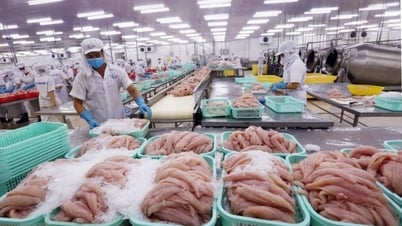


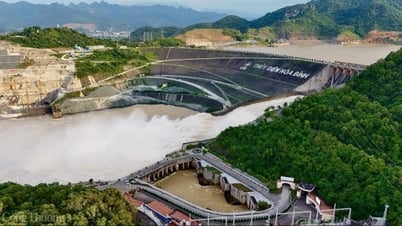


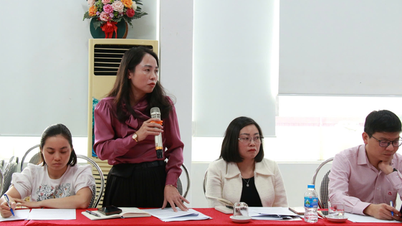
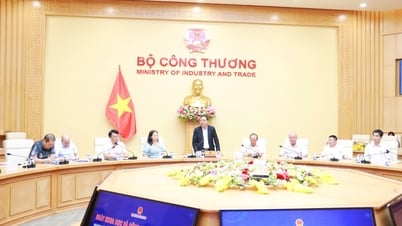
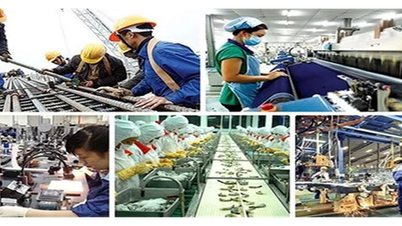





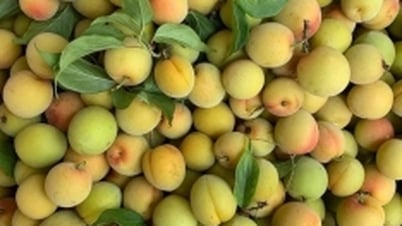
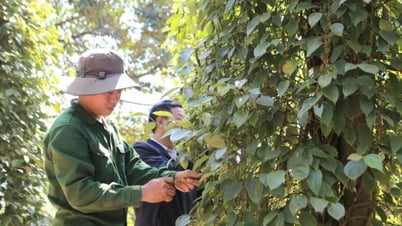
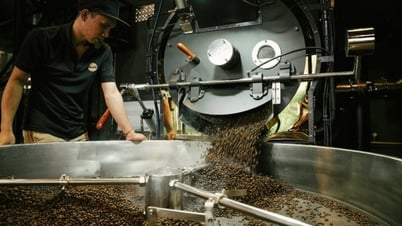

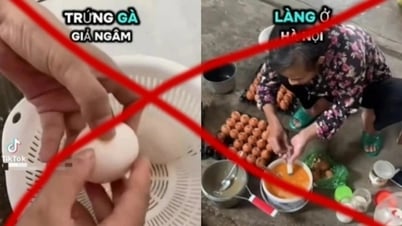

![[Photo] Prime Minister Pham Minh Chinh inspects the progress of the National Exhibition and Fair Center project](https://vphoto.vietnam.vn/thumb/1200x675/vietnam/resource/IMAGE/2025/5/19/35189ac8807140d897ad2b7d2583fbae)
















































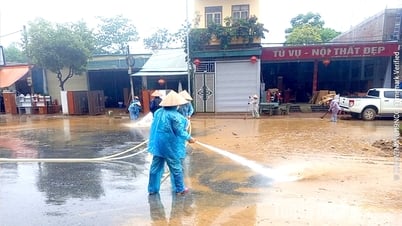

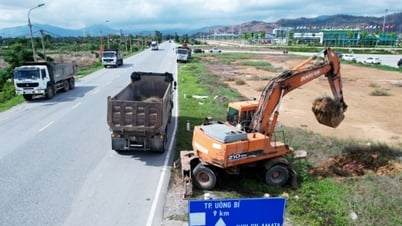

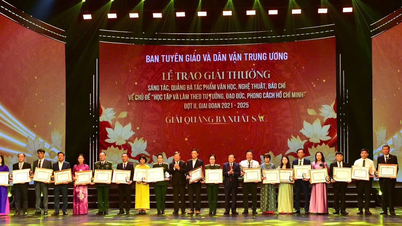







![[VIDEO] - Enhancing the value of Quang Nam OCOP products through trade connections](https://vphoto.vietnam.vn/thumb/402x226/vietnam/resource/IMAGE/2025/5/17/5be5b5fff1f14914986fad159097a677)



Comment (0)